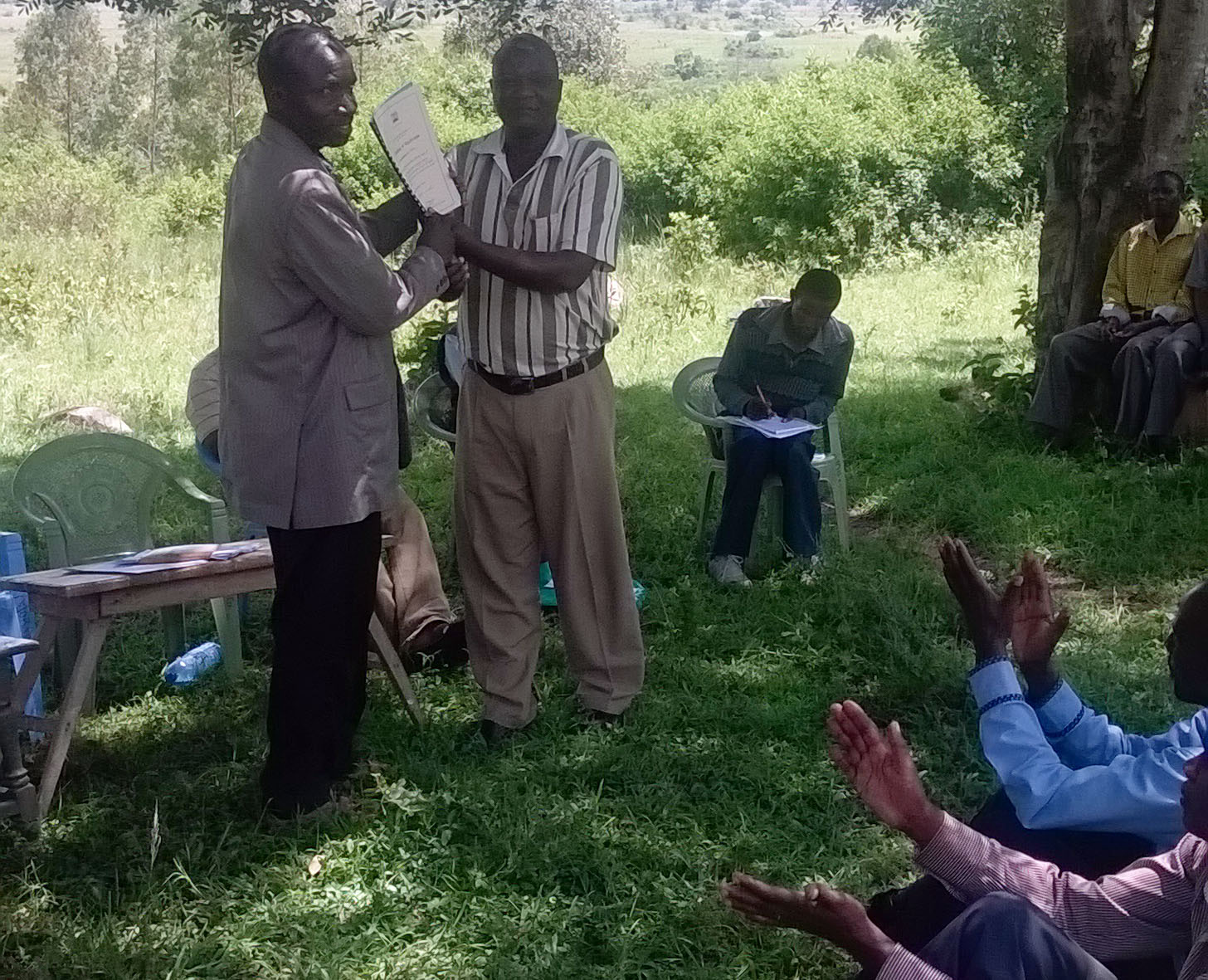Working through farmer cooperatives allows Nuru to address the financial and food security of smallholder farmers in Kenya. Through farmer cooperatives, Nuru is addressing the links that do not function well along a specific value chain.
Nuru Kenya supports maize, millet and sorghum value chains right from the planting stage by providing input loans to ensure farmers have the inputs they need for planting. Throughout the growing season farmers continue to receive training and agronomic extension support from Nuru Kenya. These services are targeted at increasing yields among farmers to improve their food security and economic situation. While these services have been effective at increasing yields, over the previous years we realize an immediate need to build systems and structures to sustain our key interventions.
In response to this need, Nuru Kenya is piloting working with farmers through registered cooperatives. The initial stages of this pilot began in mid-2015 in Kuria East.
The cooperative business model is unique and distinct from other business models in three main areas: ownership, governance and sharing of benefits.
Unlike other business models, a cooperative enterprise is member-owned, member-controlled and member-used. Ownership, control and utilization are guided by the values and principles of democracy, equality and equity. The criteria for assessing if a business is truly a cooperative enterprise is therefore to ask: is it owned by its users, is it controlled by its owners, is it used by its owners and do its benefits mainly go to its owners?
Nuru Kenya expects that by organizing farmers into a cooperative structure, they will benefit in the following ways:
- Improved quality and quantity of produce by access to member training and education
- Better understanding of the market situation
- Better prices for produce because the cooperative can train farmers on how to achieve better quality of produce
- Improved access to other agricultural support services
- Improved access to credit
- Replacing middle men with more efficient market systems and better bargaining power by aggregating community produce
- Standardization and uniformity of products
- Access to advertising and marketing services
- Reduced overhead expenses because of economies of scale
As Nuru Kenya shifts to a cooperative model, the organization will continue to provide its current services to farmers—such as Financial Inclusion, Healthcare and Education—and also extend new resources, support and capacity building for cooperatives and their members.
Key ways Nuru Kenya plans to interact with agricultural cooperatives include:
- Provide base education on cooperatives, loans and other topics to farmers
- Assist and guide farmers during registration of cooperatives
- Provide seed capital that the cooperative can advance to its members as agricultural input loans
- Assist in management of the cooperative by engaging a qualified personnel for a limited period of time
- Help develop effective service delivery mechanisms and provide onsite technical support to the cooperative
- Provide education on leadership and cooperative management to management committee members
- Link farmer cooperatives to other service providers such as banks and markets
- Integrate other interventions and services like healthcare, education and financial inclusion into cooperatives at a later stage
Nuru Kenya has worked with small scale farmers to form and register five cooperatives in Kuria East and Migori sub-counties for the 2016 long rains season. These cooperatives are already functional and members have already received inputs on loan, planted and are currently managing their crop cycle with support from Nuru Kenya and cooperative leaders.
In coming months, Nuru Kenya plans to move to the next phase with cooperatives, which includes scaling to new areas in Kuria East and also organizing current farmers in Kuria West into cooperatives. Long term, these cooperatives will provide a community-owned, sustainable platform for providing services that help end extreme poverty across Migori County.


